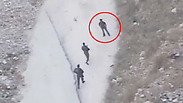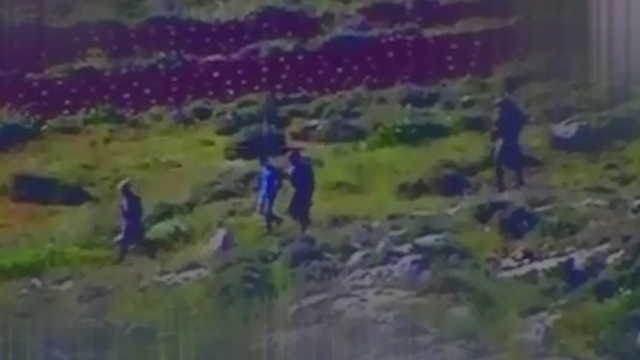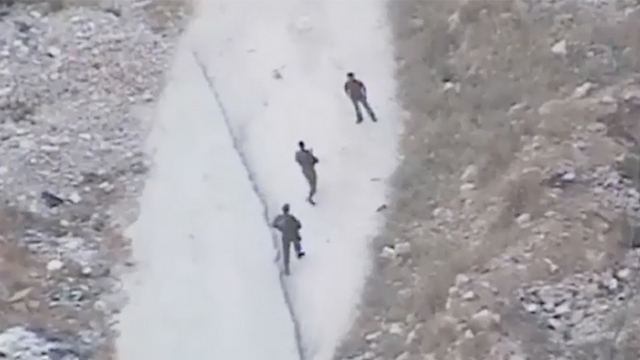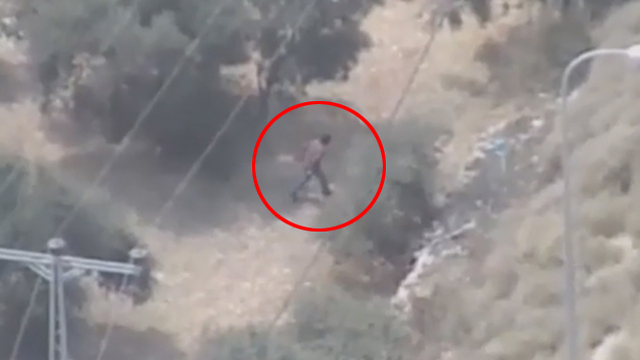

The road to safety
Route 443 between Jerusalem and Modi'in has been subject to dozens of attacks during the recent wave of terrorism due to its proximity to Ramallah and other Palestinian villages; The IDF is planning to put up more cameras to identify terrorists before they can carry out their attacks.
There will also be two additional surveillance balloons along the route to supplement the surveillance balloon already in use.
The camera feeds will be fed live to a central operations room that will enable the IDF to follow events in real time. The military will be able to have a better view of the hilly terrain upon which the road is built, and will be able to monitor the valleys that terrorists have used to get to the highway and throw rocks and Molotov cocktails at Israeli cars.

When a rock hits the windshield of a car travelling at 75 mph or above, the results can be deadly. On a tour of the highway with the commander in charge of securing the area, one can see the nearly impossible task the IDF has to protect the road.
Lt. Col. Chai Rokach of the Tavor Battalion of the IDF Homefront Command said that there are always between 50 to 70 combat soldiers patrolling the 10 mile long highway. They serve as a buffer between the many small Palestinian villages next to the highway and the thousands of Israeli cars that drive along it every single day.
The fact that there is no security fence along the majority of the highway means that the soldiers are stretched thin. One of the unit commanders of the Tavor Battalion, Sgt. Keren Paz Tirosh, stands with three of her soldiers at a guard post along the highway. Her and her soldiers are there to identify and intercept cells intending to throw rocks and Molotov cocktails in the hopes of injuring and killing Israeli motorists.
They specifically watch the village of Beit Ghur al-Tahta, which lays only a couple of yards away from the highway, from which dozens of stone throwers have come from.
According to Tirosh, any ambush on Israeli vehicles can possibly include armed terrorists. Terrorists are able to get to her area of operations from Qalandia checkpoint, Ramallah, or even Beituna – cities and villages that lie only a few minutes' drive from her and her soldiers.
A few miles up the road lies Checkpoint Bell, which has already seen several attacks over the past year. The relative quiet and reduction in terror attacks has not lulled the Home Front Command soldiers here into a false sense of security.
When on duty, all the soldiers there are ready with a bullet in the chamber, waiting in case someone in a car driving from Ramallah decides to open fire on them.
On occasions when those monitoring the cameras in the central operations room identify suspicious activity or see someone throwing stones or Molotov cocktails at the cars driving along the highway, the IDF is able to work immediately to ensure their swift capture.
As an example of that, when a group of stone throwers were observed coming from the village of Khirbet al-Misbah – another Palestinian village situated next to route 443, where the majority of residents have Israeli work permits – ground forces were able to be directed to find and arrest the terrorists.
The difficulty, however, isn't in finding the terrorists who commit these acts, but in stopping them before they happen. This is primarily due to the fact that the terrorists are able to hide in the hilly terrain upon which the highway is built.
With this new system of cameras, and the soldiers of the Tavor Brigade patrolling the highway, Israelis can feel safer as they commute between Jerusalem and Modi'in.

















